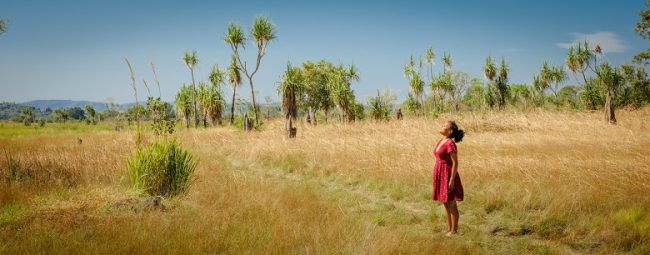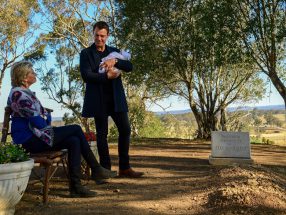Local authorities should look to partnering with the screen sector if they want a shortcut to money, jobs, tourists and cultural capital, a conference has heard.
Screen Australia CEO Graeme Mason spoke about the power of the screen in revitalising communities at a place branding conference in Sydney this month.
Many metropolitan and regional centres are already enjoying the benefits of embracing the film and TV industry, Mr Mason told the audience.
Films like Picnic at Hanging Rock and Mad Max were filmed decades ago,but are still bringing benefits to Victoria’s Hepburn Shire in terms of tourism and recognition.
More recently, the popular TV series Summer Bay, which is viewed from the UK to Turkey and Hong Kong, has turned Sydney’s already exclusive Palm Beach into a top tourist drawcard.
The British/Australian production The Cry showcased the Great Ocean Road and a string of coastal Victorian towns including Queenscliff, Point Lonsdale, Point Cook and St Andrews beach on the Wellington peninsula.
The hit TV show Doctor Doctor, known and loved overseas as The Heart Guy, has put the NSW towns of Mudgee and Cobbity on the map while the Australian rom-com Top End Wedding, the first film ever shot in the Tiwi Islands, is reaping huge benefits for the local Indigenous community.

Even the massively popular animated series Bluey, set in Brisbane, is doing its bit for the Queensland capital.
“The screen sector can bring money into your area or your town,” Mr Mason told delegates. “We can drive tourism, we can create jobs. We can deliver creative, cultural and economic benefits.”
As big as the Opera House
Screen content is a big a tourism driver for Australia as the Opera House, Mr Mason told delegates at the Place Branding Australia Conference on June 4.
About 250,000 tourists visit or extend their stay in Australia each year as a result of viewing Australian content and it drives around $725 million in international tourism spend each year.
The tourism benefits haven’t gone unnoticed, with the soap not only helping launch Chris Hemsworth’s career but turning him into a global ambassador for Tourism Australia.
Breath, based on the Tim Winton’s novel was shot filmed in the small West Australian town of Denmark.
“When it premiered at the prestigious Toronto film festival the first question director Simon Baker was asked was ‘where is this place and how do we get there’,” Mr Mason said.
In Tasmania, a surge in screen drams over the last five years has coincided with tourists flocking to the Apple Isle, and the mystery drama, the Kettering Incident, shot in Kettering and Bruny Island, triggered an immediate spike in international visitors.
Shot in the arm for local economies
Screen productions don’t just bring tourists. According to the non-profit Screenworks, which works with councils and businesses to attract new productions to regional areas, screen production has spent $7.4 million in the NSW Northern Rivers region over the last five years.

In Victoria the adaptation of the Jan Harper novel The Dry is filming across 17 country towns. It is anticipated to spend $11 million in the region and employ 350 locals.
In Western Australia the filming of Mystery Road brought $5.8 million to the community and in South Australia Storm Boy Shoot added $5.7 million for the Fleurieu Peninsula. Sweet Country spent $1 million in regional parts of NT, around $200,000 of which went to indigenous businesses.
Jobs are another benefit. According to Screenworks, an average of 317 film practitioners were employed per year in regional productions in the last five years in the NSW Northern Rivers, while a recent Deloitte report found that screen production directly and indirectly contributed to more than 1000 full time equivalent jobs to South Australia in the last financial year.
Rallying communities
As well as tourism and jobs, partnering with the screen industry has the power unite, re-invigorate and instil pride in local communities, Mr Mason says.
Top End Wedding, didn’t just create more than 440 jobs for the local community, but was the catalyst for a shift in the Northern Territory narrative.
“Top End Wedding is shifting the narrative away from crocodiles to something else, and it highlighted the unique language and culture of the Tiwi Islands,” Mr Mason said.
Gods of Wheat Street, filmed in the NSW Norther Rivers and featuring an Indigenous, cast focused on a modern Indigenous family.
The production employed 270 locals and injected $2.5 million into the area, but it also “helped fuel pride and connections, especially amongst the Aboriginal communities in the region,” Mr Mason said.
Council incentives
Queensland, meanwhile, has tapped government incentives to host some of the largest films made anywhere in the world, including Pirates of the Caribbean and Aquaman.
Gold Coast City Council, which hosted both films, is the only council in Australia to provide independent of incentives on top of those provided via Screen Australia and the state agency Screen Queensland.
Among the incentives is a financial assistance package ranging from $30,000 for films valued between $1.5 and 3 million, and $100,000 for those valued over $25 million.

Eligibility is based on the value and duration of the production as well estimated jobs and economic impact.
It also provides a location and studio guide for prospective producers.
Mr Mason says to take advantage of screen opportunities local authorities should get in touch the with state and territory agencies that link the film industry to local communities.
“If you don’t already have a relationship with the agency nearest to you reach out to them,” he said.
“Get your locations onto data bases used by location scouts. Understand opportunities for productions that might be coming up. And check you region is as film-friendly as it can be.”
Comment below to have your say on this story.
If you have a news story or tip-off, get in touch at editorial@governmentnews.com.au.
Sign up to the Government News newsletter.





Leave a Reply